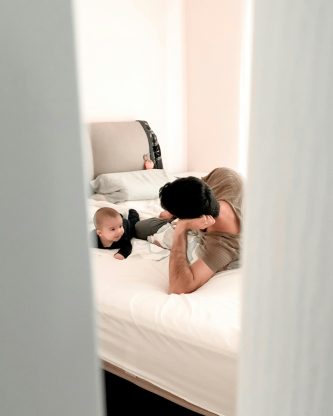Table of Contents
Setting Clear Expectations
Establishing Open Lines of Communication
Discussing Emergency Protocols
Addressing Behavioral Expectations
Building Trust and Rapport
Setting Clear Expectations
When hiring a babysitter, it is crucial to clearly communicate your expectations regarding responsibilities, duties, and rules. Be specific about your child’s routine, bedtime, mealtime preferences, and any other important information the babysitter needs to know. Providing a written list of instructions can be helpful in ensuring that nothing is overlooked. Make sure to discuss any house rules, such as screen time limits, visitors, and bedtime routines. Establishing clear expectations from the start will help prevent misunderstandings and ensure that the babysitter knows what is expected of them.
Establishing Open Lines of Communication
Effective communication is a two-way street. Encourage open communication with your potential babysitter by asking about their experience, qualifications, and any concerns they may have. Be open and honest about your child’s needs, preferences, and any special considerations. Make sure to discuss how you prefer to be contacted while you are away, whether it be through phone calls, texts, or emails. Providing contact information for emergencies as well as non-emergency situations will help establish a clear line of communication between you and the babysitter.
Discussing Emergency Protocols

Safety should always be a top priority when hiring a babysitter. Be sure to discuss emergency protocols, such as what to do in case of accidents, illnesses, or natural disasters. Provide the babysitter with a list of emergency contacts, including family members, neighbors, and healthcare providers. Make sure the babysitter knows the location of important items, such as first aid kits, fire extinguishers, and emergency phone numbers. Review any allergies, medical conditions, or special needs your child may have, and discuss how these should be managed in case of an emergency.
Addressing Behavioral Expectations
It is important to communicate any behavioral expectations you have for your child with the babysitter. Let the babysitter know how you handle discipline, how you reinforce positive behavior, and any strategies you use to address challenging behaviors. Discuss any triggers, routines, or strategies that help your child in managing their emotions and behavior. Be clear about your expectations regarding screen time, outdoor play, and other activities. Encourage the babysitter to communicate with you about any behavioral issues that arise so that you can work together to address them.
Building Trust and Rapport
Effective communication is key in building trust and rapport with your babysitter. Take the time to get to know the babysitter, ask about their interests, hobbies, and experiences with childcare. Share information about your child, their likes, dislikes, and any important details the babysitter should be aware of. Encourage the babysitter to ask questions, seek clarification, and provide feedback on how things are going. Building a positive relationship based on trust, respect, and open communication will ensure that both you and the babysitter feel comfortable and confident in their role.
In conclusion, effective communication is essential in hiring a babysitter who will provide quality care for your child. By setting clear expectations, establishing open lines of communication, discussing emergency protocols, addressing behavioral expectations, and building trust and rapport, you can ensure that your child is safe, happy, and well cared for while you are away. Take the time to communicate effectively with potential babysitters to find the right fit for your family.










